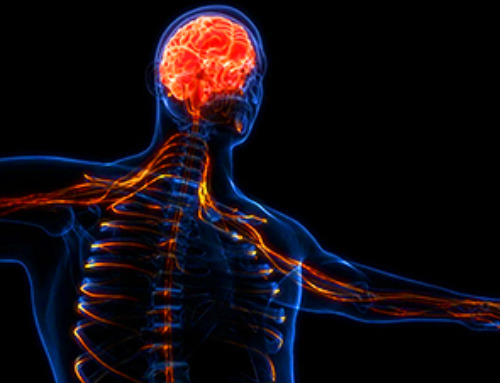Led by the University of Oxford, a team of UK-based researchers have today reported results of the largest ever study to compare the risks of cardiovascular events, such as myocarditis, pericarditis, and cardiac arrhythmia, between different vaccines and COVID-19 infection, and the first to investigate the association between cardiac events and the Oxford-AstraZeneca vaccine.
Writing in Nature Medicine, the researchers linked the English National Immunisation (NIMS) Database of COVID-19 vaccination with a national patient level healthcare database of 38 million people aged 16 or older vaccinated for COVID-19 in England between 1 December 2020 and 24 August 2021. The study looked at rates of hospital admission or death from myocarditis, pericarditis, and cardiac arrhythmias in the 1–28 days following vaccination or a COVID-19 positive PCR test.
Julia Hippisley-Cox, professor of clinical epidemiology and general practice at the University of Oxford, and study lead said:
“We know the COVID-19 vaccines are highly effective at reducing risks of severe outcomes from COVID-19 infection. And what we’ve found here continues this finding—whilst there are some increased risks of rare heart related complications associated with vaccines these are much lower than the risk associated with getting COVID-19. For example, we estimated between 1 and 10 extra events of myocarditis in 1 million people vaccinated with a first or second dose, but 40 extra cases in 1 million people infected with COVID-19.
However, it is important that we know about and identify the risks of these rare conditions from vaccines as well, to ensure that clinicians know what to look for, aid earlier diagnosis, and inform clinical decision making and resource management.”
Martina Patone, medical statistician at the Nuffield Department of Primary Care Health Sciences, University of Oxford, and co-lead author said:
“This is the largest study to date of acute cardiac outcomes after COVID-19 vaccination or infection and the first to compare risk of cardiac events between different vaccine products and COVID-19 infection. This is also the first study to investigate the association between cardiac events and the Oxford AstraZeneca vaccine. This will be important to the public, clinicians and policy makers as although myocarditis and pericarditis were not observed as risks in COVID-19 vaccine trials, there have been numerous reports of suspected cases following vaccination in the general population.”
The findings show the risks of myocarditis associated with the two mRNA vaccines to be slightly higher in people aged under 40 and particularly after the second Moderna vaccine. For these people, the study estimated that there were an extra 10 myocarditis events per million people following a positive SARS-CoV-2 test and an extra 15 per million following a second dose of mRNA-1273 (Moderna) vaccine.
The researchers stress that more research is needed to understand why the risk of myocarditis appears to be higher following the Moderna vaccine in this group of people, but also stress that while the risks of myocarditis are slightly higher than COVID-19 infection, the vaccine is still safer overall and risks less harm than COVID-19 infection.
Professor Nicholas Mills, British Heart Foundation Chair of Cardiology at the University of Edinburgh, and co-lead author said:
“Our findings are consistent with those from a similar study of people receiving the Pfizer-BioNTech vaccine from Israel and two studies of people receiving the Moderna vaccine in the US. We’ve now extended these observations by including 38 million adults in England receiving both adenovirus and mRNA vaccine types.
This study had several strengths. First, the UK offered an ideal place to carry out this study given three vaccinations have been rolled out at speed and scale. Second, this was a population-based study of prospectively recorded data and avoided recall and selection biases linked to case reports. Third, the large sample size means that we can identify rare events that might not be picked up through clinical trials.”
News
Nerve Damage Can Disrupt Immunity Across the Entire Body
A single nerve injury can quietly reshape the immune system across the entire body. Preclinical research from McGill University suggests that nerve injuries may lead to long-lasting changes in the immune system, and these [...]
Fake Science Is Growing Faster Than Legitimate Research, New Study Warns
New research reveals organized networks linking paper mills, intermediaries, and compromised academic journals Organized scientific fraud is becoming increasingly common, ranging from fabricated research to the buying and selling of authorship and citations, according [...]
Scientists Unlock a New Way to Hear the Brain’s Hidden Language
Scientists can finally hear the brain’s quietest messages—unlocking the hidden code behind how neurons think, decide, and remember. Scientists have created a new protein that can capture the incoming chemical signals received by brain [...]
Does being infected or vaccinated first influence COVID-19 immunity?
A new study analyzing the immune response to COVID-19 in a Catalan cohort of health workers sheds light on an important question: does it matter whether a person was first infected or first vaccinated? [...]
We May Never Know if AI Is Conscious, Says Cambridge Philosopher
As claims about conscious AI grow louder, a Cambridge philosopher argues that we lack the evidence to know whether machines can truly be conscious, let alone morally significant. A philosopher at the University of [...]
AI Helped Scientists Stop a Virus With One Tiny Change
Using AI, researchers identified one tiny molecular interaction that viruses need to infect cells. Disrupting it stopped the virus before infection could begin. Washington State University scientists have uncovered a method to interfere with a key [...]
Deadly Hospital Fungus May Finally Have a Weakness
A deadly, drug-resistant hospital fungus may finally have a weakness—and scientists think they’ve found it. Researchers have identified a genetic process that could open the door to new treatments for a dangerous fungal infection [...]
Fever-Proof Bird Flu Variant Could Fuel the Next Pandemic
Bird flu viruses present a significant risk to humans because they can continue replicating at temperatures higher than a typical fever. Fever is one of the body’s main tools for slowing or stopping viral [...]
What could the future of nanoscience look like?
Society has a lot to thank for nanoscience. From improved health monitoring to reducing the size of electronics, scientists’ ability to delve deeper and better understand chemistry at the nanoscale has opened up numerous [...]
Scientists Melt Cancer’s Hidden “Power Hubs” and Stop Tumor Growth
Researchers discovered that in a rare kidney cancer, RNA builds droplet-like hubs that act as growth control centers inside tumor cells. By engineering a molecular switch to dissolve these hubs, they were able to halt cancer [...]
Platelet-inspired nanoparticles could improve treatment of inflammatory diseases
Scientists have developed platelet-inspired nanoparticles that deliver anti-inflammatory drugs directly to brain-computer interface implants, doubling their effectiveness. Scientists have found a way to improve the performance of brain-computer interface (BCI) electrodes by delivering anti-inflammatory drugs directly [...]
After 150 years, a new chapter in cancer therapy is finally beginning
For decades, researchers have been looking for ways to destroy cancer cells in a targeted manner without further weakening the body. But for many patients whose immune system is severely impaired by chemotherapy or radiation, [...]
Older chemical libraries show promise for fighting resistant strains of COVID-19 virus
SARS‑CoV‑2, the virus that causes COVID-19, continues to mutate, with some newer strains becoming less responsive to current antiviral treatments like Paxlovid. Now, University of California San Diego scientists and an international team of [...]
Lower doses of immunotherapy for skin cancer give better results, study suggests
According to a new study, lower doses of approved immunotherapy for malignant melanoma can give better results against tumors, while reducing side effects. This is reported by researchers at Karolinska Institutet in the Journal of the National [...]
Researchers highlight five pathways through which microplastics can harm the brain
Microplastics could be fueling neurodegenerative diseases like Alzheimer's and Parkinson's, with a new study highlighting five ways microplastics can trigger inflammation and damage in the brain. More than 57 million people live with dementia, [...]
Tiny Metal Nanodots Obliterate Cancer Cells While Largely Sparing Healthy Tissue
Scientists have developed tiny metal-oxide particles that push cancer cells past their stress limits while sparing healthy tissue. An international team led by RMIT University has developed tiny particles called nanodots, crafted from a metallic compound, [...]





















